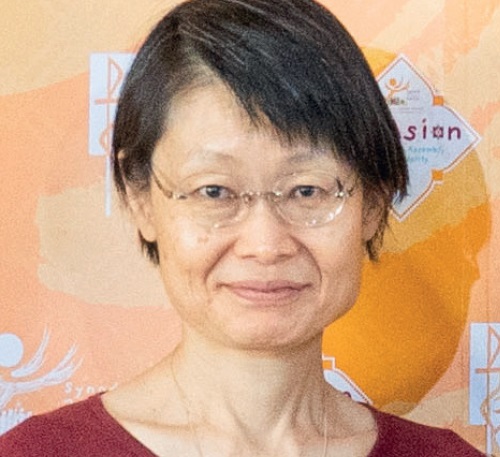The Synodal process has only just begun
On July 7, 57 non-voting “experts and facilitators” comprising of priests and religious and lay men and women were named to be part of the Synod of Bishops.
Jul 28, 2023

On July 7, 57 non-voting “experts and facilitators” comprising of priests and religious and lay men and women were named to be part of the Synod of Bishops.
More names are going to be added to the list of non-voting members, such as experts and representatives of non-Catholic Christian communities, said Cardinal Mario Grech, secretary-general of the Synod of Bishops,
Professor Christina Kheng, a Singaporean layperson who teaches Pastoral Leadership at the East Asian Pastoral Institute in Manila, will be at the synod as an Expert and Facilitator. Previously, she was named by Pope Francis to be part of the Commission on Methodology supporting the Synod’s General Secretariat.
She shares her experience of both the Consultation Stage of the Synod, and the meeting held in Frascati (near Rome) to draft the Working Document for the Continental Stage.
“What has become very important to me is that as a Church, we are used to being ready with the answers or telling people what’s right and what’s wrong. But in this process of learning and doing synodality, everyone is learning as we go along. And sometimes it’s trial-and-error. What’s key about the sensus fidei fidelium is that, theologically, we know what it is. We can actually talk about it and describe it. But this is the first time we are actually trying to harness it even on a worldwide basis. We have the example of the Council of Jerusalem. That was the early Church with a relatively small number of people compared to what we have today.
“So, in a way, we are learning as we go along trying to find out what exactly are the methods and the processes to harness the sensus fidei fidelium. I admit that it has not always been a smooth process. We’ve had to adjust so many times. But the wonderful thing is that the adjustment does occur. At the very beginning when people asked for more time, the deadline was extended. And now we have even the surprise move to have two sessions of the meeting. And what’s also going to be a surprise move is that people saw the document for the continental stage. They had a chance to give feedback, raise questions, and that’s never been done before. So really, we are learning synodality by doing synodality.”
“One thing that impressed me very much is just the plethora of efforts and the creativity that we saw from people all over the world. If people admire the array of direct quotes and voices from the ground all over the world in all continents. I would really like to emphasise that the real heroes of this synodal process are the synodal teams. They are people who travelled far and wide, who worked for a long time to get to remote areas to bring the voices from the peripheries to the centre. There were people who did not travel physically, but had to travel a lot emotionally and socially to reach out to their friends or relatives who have left the Church, who feel disenfranchised by the Church, to persuade them to lend their voice to be consulted in this process.
To me, these are the real heroes of this synodal process. And it’s because of them that we have this rich and valuable array of voices from the field. Of course, much, much, much more has to be done and to be improved upon. Many people were not consulted, but I think it’s a very good start and I hope it’s a momentum that will keep going. The synodal journey has only just begun, let’s keep going.
Source: Vatican News







Total Comments:0